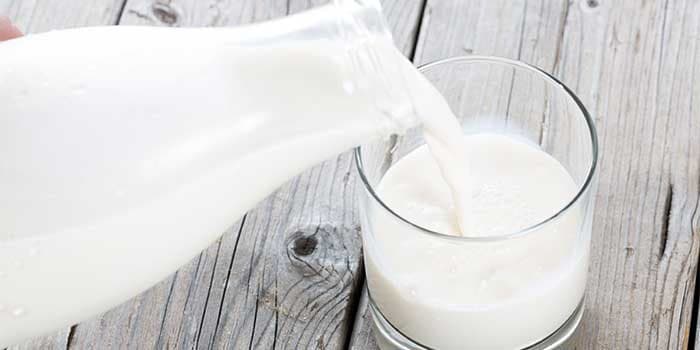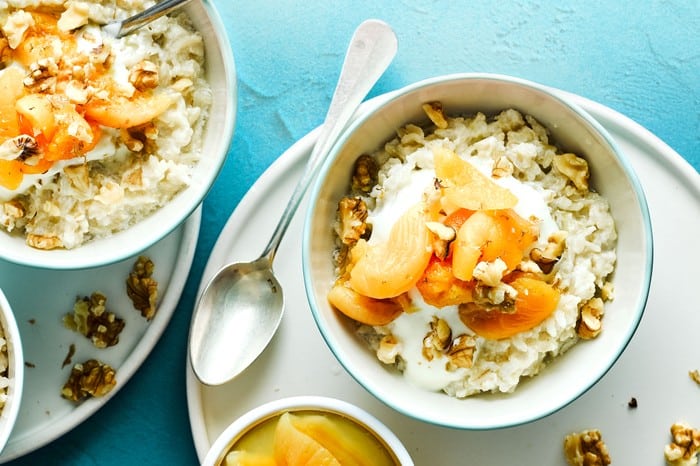The menopause is when the ovaries stop releasing eggs and levels of hormones oestrogen, progesterone and testosterone fall. A woman is in the menopause when she hasn’t had a period for 12 months, and the perimenopause is the time directly before that when hormones start to decline and menopausal symptoms occur.
Common menopause symptoms
Oestrogen is a crucial hormone for every cell in our bodies, so the menopause can trigger literally dozens of symptoms including:
- Hot flushes and night sweats (about 3 in 4 will suffer from these)
- Fatigue
- Psychological symptoms such as mood changes, anxiety and poor concentration/brain fog
- Low libido
- Weight gain
- Headaches and worsening migraines
- Vaginal dryness
- Dry and/or itchy skin
- Thinning hair and excess facial hair
- Recurrent urinary tract infections
- Changes to periods, often an early sign of perimenopause

What age does menopause usually happen?
The average age of the menopause in the UK is 51, but it’s important to stress menopause does not only affect women in mid-life. About one in 100 women will go through the menopause before the age of 40, and one in 1,000 before the age of 30. This is known as premature ovarian insufficiency.
What treatment options are available?
Hormone replacement therapy (HRT) is the first line treatment for menopausal symptoms. As the name suggests, HRT replaces the hormones you are deficient in, improves symptoms and helps protect against the long-term health risks of hormone deficiency including osteoporosis, cardiovascular disease and diabetes.
Topical vaginal oestrogen also helps ease vaginal dryness, while testosterone can be helpful for women who are still experiencing symptoms such as fatigue, brain fog or low sex drive after taking HRT for a few months.
Is there a role for diet and lifestyle intervention?
It’s really important to have a holistic approach to managing the menopause. Individualised treatment, regular exercise (particularly bone-strengthening exercises such as walking, as women are more at risk of developing osteoporosis in later life), good nutrition and relaxation is key.
The right foods can help combat fatigue and boost energy levels. A good starting point is following the principles of a Mediterranean diet, high in vegetables, nuts, beans, cereals, fish (or other sources of omega 3 oils) and unsaturated fats such as olive oil.
Calcium is important for bone health, and you should consider taking a Vitamin D supplement to help your body absorb calcium.
You should also try to avoid white refined carbohydrates, such as white bread and pizza, as these cause a rapid release of blood glucose and can exacerbate mood swings. Changing to low-GI (glycaemic index) carbohydrates such as wholegrain bread, brown rice, pulses, beans or sweet potatoes and plenty of low-GI vegetables such as salad or greens will help maintain blood sugar levels. You might also find smaller, more regular meals regulate mood swings.
Many people suffer from bloating and cramps during the perimenopause and menopause. Research is revealing more about the importance of a healthy gut and its influence on hormone health and our emotional wellbeing. Eating a diet rich in fibre encourages the growth of friendly bacteria which will aid energy levels, immunity and weight maintenance. Healthy bacteria also have a role in production of the chemical serotonin which can improve your mood.
The main foods for gut health are prebiotic and probiotic foods. Prebiotics stimulate the growth of good bacteria in the gut –foods such as garlic, onions, asparagus, chicory, ginger, cabbage, beetroot and blueberries.
Probiotic foods contain live bacteria and yeasts that can help restore the natural balance of bacteria in the gut. Probiotic foods include kefir, live yogurt, kombucha, sauerkraut and kimchi.
Supplements containing probiotic bacteria can be beneficial, such as lactobacillus acidophilus, a bacteria normally found in the gut and has an important role in your immune responses.
What recipes can I try to optimise nutrition during perimenopause and menopause?
Clinical nutritionist, author and former chef, Emma Ellice-Flint, works alongside clinicians at the Newson Health Menopause and Wellbeing Centre in Stratford-upon-Avon, and has a special interest in nutrition for women experiencing perimenopausal and menopausal change. She suggests enjoying the following:
Roast sea bass and vegetable traybake
Acquacotta
Mediterranean fish gratins
Mediterranean-style bean salad
Vegetarian casserole
Layered aubergine lentil bake
How to manage menopause symptoms
It’s important to be aware of the symptoms of menopause and perimenopause, and if symptoms are affecting your everyday life, speak to a healthcare professional to have an individual conversation about treatments that can help. Keeping track of symptoms can be really beneficial: simply write them down or my free app, Balance allows you to log symptoms and create a personalised health report to take along to medical appointments.
A balanced diet and regular exercise also play an important role in managing menopause symptoms and safeguarding long-term health.
Discover more
Why is the Mediterranean diet so healthy?
Spotlight on.. high-fibre diets
The best calcium-rich foods
High-fibre breakfast recipes
Energy-boosting breakfast recipes
This article was published on 7 July 2022.
Dr Louise Newson is a GP and menopause specialist who campaigns for better menopause care for all. She is a No 1 Sunday Times bestselling author, founder of the free Balance app and The Menopause Charity.
All health content on bbcgoodfood.com is provided for general information only, and should not be treated as a substitute for the medical advice of your own doctor or any other health care professional. If you have any concerns about your general health, you should contact your local health care provider. See our website terms and conditions for more information.








